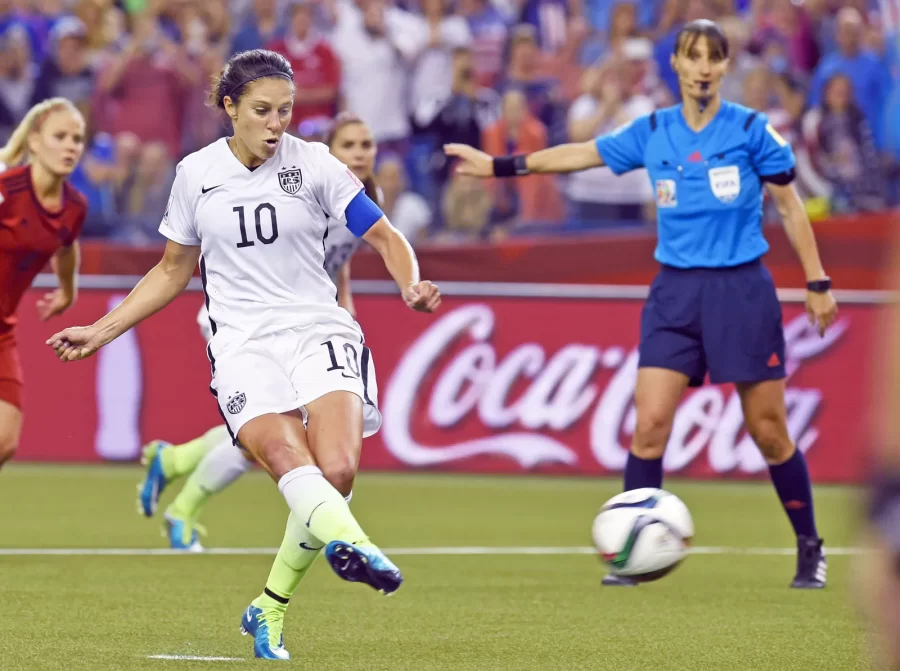Football is an excellent way for children learn social skills they can carry with them all their lives. Children also gain an understanding of the importance of working together with their teammates.
European clubs nurture their most talented youngsters through a combination of coaching, scouting and player development programs. The ultimate aim is to sculpt latent potential into world-class talent.
Teamwork
Teamwork is one of the most important lessons to learn in football. Children who play youth football learn how to work together to achieve common goals, which can be incredibly beneficial in their everyday lives. In addition, youth football fosters the development of leadership skills. Children who are leaders in their teams help to create a positive environment and motivate others to work hard.
Moreover, playing football also teaches children how to communicate with their teammates. They develop social skills such as empathy and compassion. This helps them to build a supportive community and create meaningful relationships with their friends.
Youth development’s ultimate goal is to identify and nurture young talents into professional players. This is achieved through a comprehensive coaching programme that incorporates technical, tactical, physical, and psychological training. In addition, it is necessary to create a pathway for youngsters to progress through the ranks and into the senior team. Clubs can secure long-term success by ensuring a constant supply of homegrown talent.
Discipline
Youth football players learn discipline through participating in regular practice sessions and pursuing their goals. They also learn how important it is to maintain a healthy lifestyle, and develop social skills. They also learn to work together and collaborate with teammates, and develop valuable relationships. As a result, they gain a sense of accomplishment and self-esteem.
In the same way, young athletes are taught to accept challenges and persevere in the face of adversity. They must be able maintain their motivation and joy during the journey, while focusing more on personal growth than external expectations.
They must also be able understand the difference between chronological age and biological age, and the impact each has on performance. Historically, coaches have categorized and selected youth players based on their physical stature and chronological age, which has overlooked the important role of a player’s biological maturity. However, the advent of soccer science and objective measures provides coaches with a plethora of invaluable insights, enabling them to select talent that is suitable for their player’s development. This enhances the overall playing style and creates a strong foundation for future success.
Leadership
Football can teach children teamwork and leadership, which will help them develop a sense for responsibility and respect. The sport can also foster a sense of social integration and reduce the barriers between different groups of people.
Youth development programs help young players to achieve their goals and lay a solid foundation for their future. The goal is to nurture their talent, instill values, and foster a passion for the game.
Many top European clubs use their youth academies, scouting systems and other methods to identify and develop young talent. They are focused on finding and developing players that fit their style of playing and can eventually compete with the best of the world. However, one of the biggest challenges for youth coaches is the decision to prioritize winning versus player development. The decision will often be based on the coach’s level of experience and the amount of time they have to dedicate to training their players. Fortunately, objective measures can provide coaching staff with a plethora of invaluable insights.
Technical Skills
A successful football club makes football bets needs to nurture its young talents in order to realize its full potential. This is why clubs have established youth academies and scouting systems to identify, nurture and develop talented players in their local communities. This enables clubs to maintain their identity and philosophy even as they grow and mature.
Youth football also allows children to build a wide range of cognitive skills that support them as they grow into adulthood. These include the ability to plan and develop strategies, as well as to focus and concentrate over a long period of time.
It’s also important for young players to learn how to manage their emotions during games. It’s because impulsive, frantic behavior can affect a team’s performance. This is especially true at the early stages of development. Youth coaches therefore need to teach their players self-control and how to remain composed under pressure. This helps them to play with greater discipline and achieve their goals on the pitch. This is also a key aspect of developing leadership abilities.
Tactical Awareness
Developing tactical awareness is one of the most important skills for football players to have. It helps them to anticipate their opponent’s moves and understand the unfolding game scenario. This helps them make quick decisions, giving them an edge over their competitors. This leads to a better-coordinated team as players are able to understand each other’s actions.
Tactical awareness can be developed through practice and experience. Youth football provides kids with opportunities to develop their tactical awareness by learning routes and completing repetitive drills. These tasks require a lot of discipline, but can help kids develop a work ethic that will be useful in their lives.
Invasion sports such as football are games of tactics where players pursue different objectives depending on whether they have the ball or not. These objectives can be divided into two categories: attack and defense. There has been little correlation between soccer-specific motor skill and tactical knowledge. However, new teaching methods are attempting to bridge this gap. They link tactical perception and action in the context of a player’s actions.

